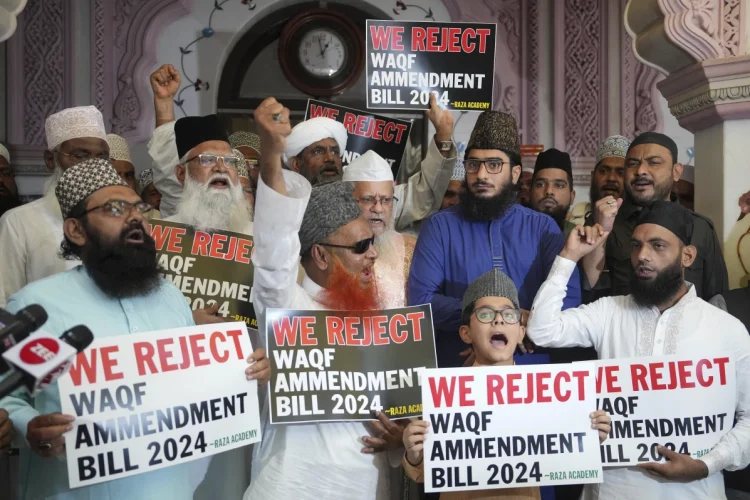The lower house of the Indian parliament on Thursday passed a controversial bill amending laws governing Muslim land endowments.
The bill proposes the inclusion of non-Muslim members in the central waqf council and waqf boards and will enable the government to determine ownership of disputed waqf properties.
Waqf is an inalienable charitable endowment under Islamic law.
It typically involves donating a building, plot of land or other assets for Muslim religious or charitable purposes with no intention of reclaiming the assets.
Such assets like land and properties cannot be transferred or sold.
The legislation came amid tensions between the Muslim community and the Modi government
The bill was passed after over 12 hours of heated debate between the ruling alliance led by Prime Minister Narendra Modi’s Hindu nationalist Bharatiya Janata Party (BJP) and the opposition bloc led by the Congress party.
The bill was cleared with 288 votes in favor and 232 against.
The BJP government said the bill would end corruption, mismanagement and examine ownership rules largely controlled by some Muslim families and influential groups.
However, the opposition strongly opposed the bill, calling it unconstitutional.
The bill will now need to clear the upper house of the parliament, before it is sent to President Droupadi Murmu for her assent to become a law. (Xinhua/NAN)









